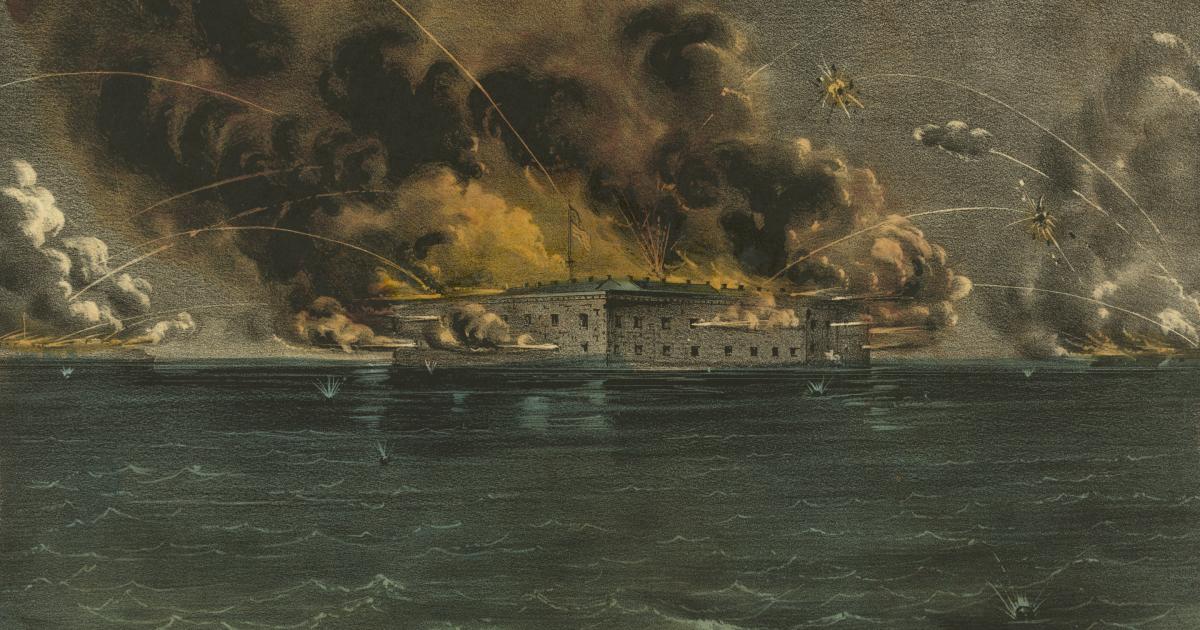5. On April 5, Lincoln dispatched a fleet of supply ships with the proviso that was relayed to Jefferson Davis: the vessels would be unarmed, with the only cargo "food for hungry men."
We won't understand this thinking that in those days it was like today where a telephone would do as you said. They had no instant communications and Jefferson Davis was many miles away in Alabama. I don't see how he had any role at all.
1. How did secession and the outbreak of civil war affect enslaved people and their southern owners?
After Lincoln’s election and the secession of the southern states, small numbers of enslaved people began showing up at Union forts in the hopes of taking refuge. But Union commanders were not charged with protecting slaves and promptly returned them to their masters. One such slave—a teenager—made his way across Charleston Harbor to Fort Sumter in March of 1861 to appeal to Major Anderson, but was turned over to marshals in Charleston.
With Union troops in their midst, white residents of Charleston were increasingly concerned about runaway slaves. Of even greater worry, however, was the possibility of a slave uprising. Mary Chestnut, wife of prominent Charleston politician and Confederate colonel James Chestnut, started keeping a diary in February 1861. As events unfolded across Charleston Harbor on April 12, she wondered how the action at Fort Sumter would impact the future.
Not by one word or look can we detect any change in the demeanor of these negro servants. Lawrence sits at our door, sleepy and respectful, and profoundly indifferent. So are they all, but they carry it too far. You could not tell that they even heard the awful roar going on in the bay, though it has been dinning in their ears night and day. People talk before them as if they were chairs and tables. They make no sign. Are they stolidly stupid? or wiser than we are; silent and strong, biding their time?
With the start of the Civil War, desperate refugees from slavery began to flood Union camps in earnest, but the government in Washington still had no consistent policy regarding fugitives. Often their fate was in the hands of the individual commanders. Finally, on August 6, 1861, the North declared fugitive slaves to be "contraband of war" if their labor had been used to aid the Confederacy. Contrabands were considered free and were protected by the Union army.
As the reality of war sunk in, slaveholders in the South hoped that their slaves would remain loyal to them. Some did, and the slave uprising that Mary Chestnut feared never came. But the exodus of enslaved people who crossed Union lines and made their way to freedom steadily increased after guns were fired at Fort Sumter. By 1863, approximately 10,000 former slaves flooded Washington. By the end of the Civil War, as many as 40,000 fugitives had made their way to the Union capital.
Early in the morning of April 12, 1861, Confederate guns around Charleston Harbor opened fire on Fort Sumter. The American Civil War was officially upon both the North and the South. A war that lasted four years and cost the lives of more than 620,000 Americans.

www.battlefields.org
